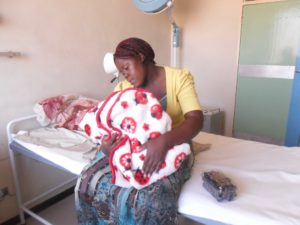Zimbabwe joined the African Union (AU) campaign to end child marriages in mid -2015. Since the inception of the campaign, several stakeholders, among them women’s rights coalitions, child rights organisations with the support of UNICEF, UNWOMEN and UNFPA have been working on a National Action Plan to End Child Marriages.
The Constitutional Court ruling of January 2016 has been an impetus to move the end child marriages agenda. A full bench of Zimbabwe’s Constitutional Court on 20 January 2016 declared child marriages unconstitutional after two young women had challenged the constitutionality of child marriages. Since the regional formation of REPSSI, the organisation has been working with various partners in member countries to fight children’s rights as well child abuse, especially on the girl child. Following high incidences of Gender Based Violence (GBV) in Zimbabwe, the organisation came up with the Joint Programme for Prevention of GBV against Adolescent Girls and Young Women (JGBV). “The JGBV was developed in response to the high prevalence of GBV in Zimbabwe as well as the failure of most interventions to respond to the needs of adolescent girls and young women between the ages of 10 and 24 years†said Desmond Gara, REPSSI’s Projects Officer in an interview with The Zimbabwean.
According to Gara, eight districts in the country namely: Gwanda, Bulilima, Umzingwane, Bindura Centenary, Beitbridge, Chipinge and Makoni have benefited from JGBV project through trainings of various key stakeholders. “The areas we were working in had high incidences of teenage pregnancies and early marriages caused by a wide range of factors such as patriarchy, poverty, drought and lack of information on sexual and reproductive health issues. In these districts, we are having capacity building workshops from various stakeholders including government departments†said Gara. The Projects Officer said the organisation closely works with the ministry of Women Affairs, Gender and Community Development at all levels.
Other stakeholders targeted under this programme include community development officers, child development officers, social service officers, community leaders and religious leaders. REPSSI also works closely with health workers, guidance and counselling teachers in schools as well as district education officers and school heads. In October this year a total number of 197 district stakeholders were trained while 198 adolescents participated in an advocacy and communication strategy on ending child marriages. One of the beneficiary of the REPSSI trainings Gertrude Moyo , a teacher in Umzingwane said the knowledge she learnt from the training has enabled her and other teachers at the school to effectively counsel and relate to pupils both boys and girls on the importance of deferring marriage up to the appropriate time. “I was one of the teachers at my school who attended REPSSI trainings.
The trainings gave more information on how to counsel abused children. I also learnt the importance of involving young boys in the campaign against early marriages and pregnancies†she said. Gara said although most traditional leaders in the area had embraced the end child marriages crusade more engagement should be done to encourage the participation of more traditional leaders. “Stakeholders are noticing a gap in the funding of such programmes. They also think that there should be high buy-in of such programmes by traditional leaders so that the fight to end child marriages will be more pronounced. I am happy that in almost all the district which we operated stakeholders have already developed work plans to continue the activities even after this programme has folded “said Gara. The Project Coordinator said following the introduction of the programme, the organisation is now more informed on issues relating to child marriages in communities. This information, he said, will result in the implementation of specific intervention activities from issues raised from the discussions.
Post published in: Featured



